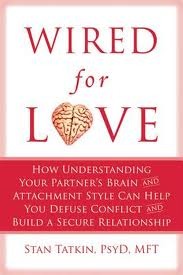More on this book
Community
Kindle Notes & Highlights
by
Stan Tatkin
Read between
June 14 - June 17, 2023
The partner we unconsciously choose is dauntingly similar—warts and all, and especially the warts—to the caretakers who reared us.
Most partners who were successful in their private psychotherapy tended to divorce rather than reconcile.
Your marriage is not about you. Your marriage is about itself; it is a third reality to which and for which you are responsible, and only by honoring that responsibility will you get your childhood and current needs met. When you make your relationship primary and your needs secondary, you produce the paradoxical effect of getting your needs met in ways they can never be met if you make them primary.
What happens is not so much the healing of childhood wounds, which may in fact not be healable, but the creation of a relationship in which two persons are reliably and sustainably present to each other empathically.
I’ve noticed partners’ theories almost always are pro-self, not pro-relationship.
What counts is their ability to be there for one another, no matter what.
This brand of autonomy doesn’t reflect true independence, but rather a fear of dependency. Instead of representing strength, it can represent weakness.
“Our relationship is more important than my need to be right,
We learn to love ourselves precisely because we have experienced being loved by someone. We learn to take care of ourselves because somebody has taken care of us. Our self-worth and self-esteem also develop because of other people.
Typically, these problems involve the positive features each chose in the other person, which they now realize also contain annoying elements.
You want it and you buy it as is, or you move on.
Or, for that matter, one of them could have said, “You know, those details don’t really matter right now. I’m more interested in what you’re feeling.”
As long as Leia and Franklin—one or both—are unable to see, understand, and appreciate their partner’s concerns or viewpoint, they will not be able to create a couple bubble.
One solution to the problem of an offline orbitofrontal cortex is for partners to wait until they have calmed down enough to be able to make even the slightest gesture to help one another.
People who are islands often confuse independence and autonomy with their adaptation to neglect.
Asking a partner, “What’s wrong?” is a bit like asking “Who are you, again?” As partners, we should know.


